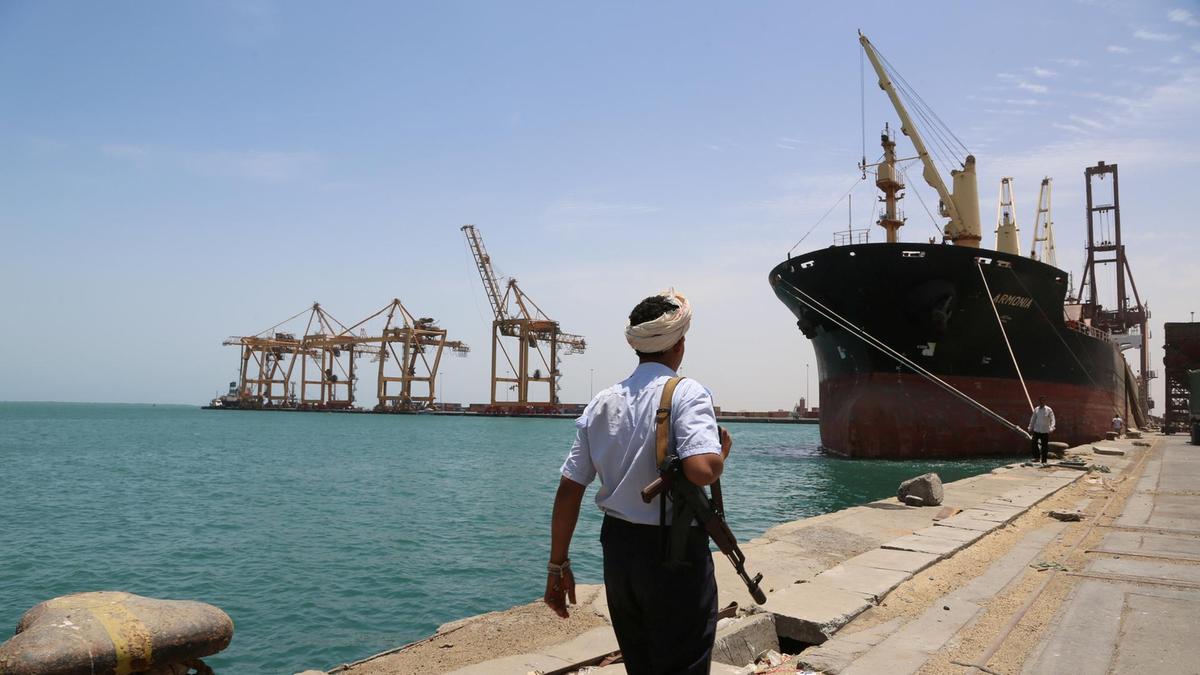20 June 2018 – On 13 June 2018, Saudi- and Emirati-led coalition forces launched an offensive against the Yemeni port city of Hodeidah. The coalition’s attack on the city began with a series of airstrikes on Wednesday and ground forces supplied by the Yemeni government. In the following days, the offensive has only escalated. Americans for Democracy & Humans Rights in Bahrain (ADHRB) strongly condemns the attack launched on Hodeidah and its detrimental impacts on what is already the world’s worst humanitarian crisis.
The attack on Hodeidah is the most recent and largest battle in the harrowing civil war that has plagued Yemen over the past three years. As Houthi rebels have warred with the Saudi-backed Yemeni government, the violence has escalated into the largest humanitarian crisis in the world. The targeting of Houthi-held Hodeidah only exacerbates an already critical humanitarian disaster. The port city handles about 70 percent of Yemen’s imports, including humanitarian aid and supplies for 28 million Yemenis, 8 million of whom are already food insecure. Lise Grande, the United Nations (UN) Humanitarian Coordinator for Yemen, has stated that an attack on Hodeidah would have grave consequences, “cutting off imports through Hodeidah for any length of time will put Yemen’s population at extreme, unjustifiable risk.”
In addition to its role as a lifeline for millions of Yemenis, the city is home to a population of around 600,000. Due to its large size and importance, it had been expected that Saudi- and Emirati-led troops would assault the city in force, potentially leading to protracted street-to-street fighting, high civilian casualties, and devastated infrastructure. As a result, ahead of the attack many humanitarian aid agencies such as the UN and Red Cross withdrew their personnel for security reasons. They also began to work out contingency methods for supplying the country with aid when the attack was launched. UN Special Envoy to Yemen, Martin Griffith, struggled to broker a deal that would ensure the port city’s neutrality and allow it to continue to receive humanitarian aid by placing it under the UN’s control. Two days after the attack began, the United Nations Security Council pled with the warring factions to keep the port open and allow the flow of crucial aid to the country’s population for fear of the start of a mass famine. The Yemeni government appeared to have obliged, stating that it did not intend to assault any of the city’ infrastructure and intended to leave the port functional for aid. However, as Saudi- and Emirati-led forces have taken control of Hodeidah’s airport and with fighting edging closer to the city center, there is still great cause for concern as the fighting threatens to further interrupt the delivery of humanitarian aid.
Husain Abdulla, Executive Director of ADHRB: “The decision by Saudi Arabia and the United Arab Emirates to attack Hodeidah is a watershed moment of the war in Yemen, demonstrating the coalition’s disregard for civilian life. Hodeidah is Yemen’s sole lifeline, handling the vast majority of all incoming humanitarian aid. It is also a city with over half a million residents. This attack will surely have devastating effects, cause widespread suffering, and have disastrous consequences for the people of Yemen who are in need of assistance. The international community must fully and unequivocally support Martin Griffin’s work to make Hodeidah a neutral site. It is not enough to express dismay at the violence and humanitarian suffering, the world must act and ensure the city does not become a war zone.”
The cut off of medical and food supplies caused by the offensive pushes the already desperate population of Yemen closer to not only famine, but expose it to a new level of disaster. ADHRB condemns the attack of Hodeidah and calls on the international community to not only keep the port open and fully functioning, but to engage further in order to bring an end to the three-year old harrowing civil war and the world’s most devastating humanitarian crisis.





